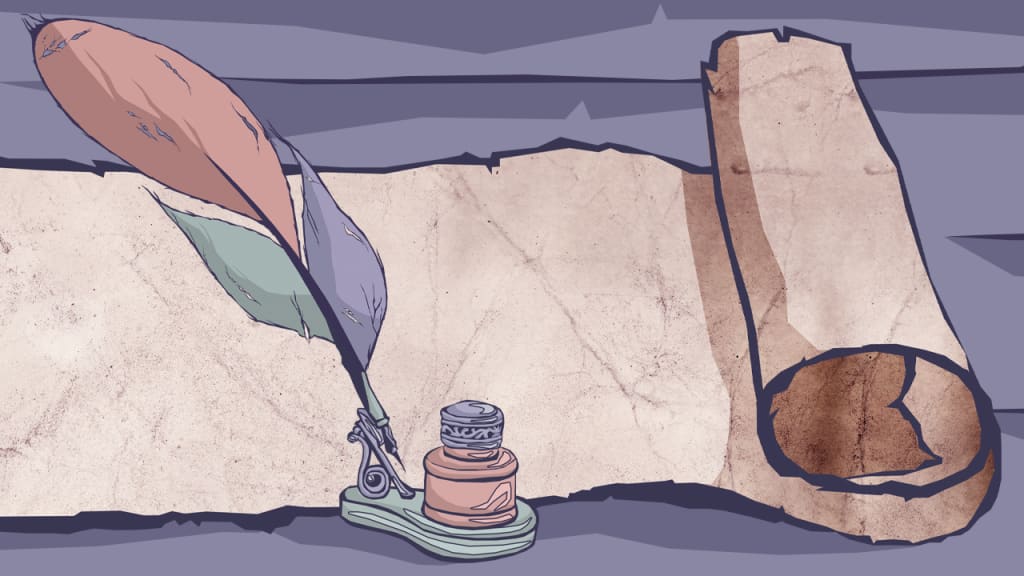
Writers block - that intangible mist hangs heavy on your shoulders, descending like a shroud upon the mind and paralyzing the hands, rendering the instruments of your creativity useless. Alas, it feels as though you shall never write another compelling word as long as you may live. Tempting as this narrative may be to buy into, to give into the ego’s constant barrage of insults upon your artistry, it need not be so.
Though highly romanticized, Writer’s Block is not a condition without a cure. You are not at the whim of your Muse, cursed to wait for her return, your progress forever stymied until she graces you with a drink from the wells of her inspiration. No, Writer’s Block is something far more simple than that - it’s self-inflicted. That is good news. That which is self-inflicted can be self-mended as quickly as it came upon you.
What is Writer’s Block?
Writer’s Block is a dead end in your writing. It’s the point at which all words stop, no more ideas come forth, and you start to doubt whether you had a good story after all. The truth is, it has nothing to do with whether your story is good or not, or even anything to do with how good of a writer you are. Writer’s Block is a direct result of forcing your story to go off in a direction it doesn’t want to go in.
Self-Diagnosing The Problem
Whether writing a fictional story or an article, if you’ve come to the point of Writer’s Block, you will find that your story has lost the power it had at the beginning. The problem is likely further back than you think - that is, not in the last paragraph, but somewhere a ways back. To fix the problem and get your creative juices flowing again, begin reading your story from the beginning and pay attention to where it begins to lose its power. Then delete, yes, delete, everything from that sentence on, and begin again.
If you’re frightened, which you’re perfectly within your rights to be, you may wish to put a good many spaces between those paragraphs and the rest of your writing. To shove those paragraphs off to the bottom of the page and keep them, just in case. You won’t need them, I promise you, but you’ll feel a certain safety in having them there, which may help while you write your new words.
Crafting Your Masterpiece
Once you’ve found the offending paragraphs and done away with them, you are free to go in a different direction. Resist the urge to try to rewrite what you had already written. This is not a time for revision of the old idea, but for allowing the birthing of something new. What is it that you wish to say? What do you desire to put across to your reader? Don’t get sucked into the trap of, “I don’t know,” because you do. You just might have to do a little digging in the treasure trove of your imagination. For that, I suggest stream of consciousness writing, where you simply write without thought of grammar or eloquence. Write about what you want to write about, as if you’re journaling about the topic. From there, you’ll find interesting tidbits that you can use to form your more potent thoughts.
In a recent short story I wrote about the pirate Anne Bonny, I hit a moment of Writer’s Block. The story begins with Anne in jail, forty-eight days after Captain Calico Jack Rackham and the crew of the William are hung for piracy, and Anne pleads the belly, narrowly escaping the same fate. Informed by the warden that she is to be released to her father’s care, Anne is pulled from her cell and given to two nuns to be washed before boarding a ship to North Carolina.
The Writer’s Block occurred because I originally had these two nuns gently bathe her, and treat her with kindness. I was at a loss. I was at a loss because, I soon realized, these are prison nuns. They are not kind. They wouldn’t be gentle at all. They would drag her to the tub, throw her in the water, and scrub her skin raw. In no way would she be treated with kindness. When I went back and deleted the three paragraphs I had written about the kind nuns and the bath scene, and transformed it into what I just described for you, the rest of the story flowed.
Ask The Right Questions
Writer’s Block can be an instrument for your creativity, if you choose to view it that way. A useful part of the creative process, when it comes about. It need not hinder you, but rather, invite you to revisit your writing, and transform it into something new. Something better. Something you may not have been able to arrive at if you had not had the Writer’s Block.
Writer’s Block causes you to ask questions, and when you ask the right questions, the answers can provide incredible results in your writing. In the case of my prison nuns, I asked myself how would a prison nun see our protagonist? She’d see Anne Bonny as less-than-human, sinful, and literally filthy. Would a person with a perspective like that treat Anne with kindness? Gently scrub her skin? No, I don’t imagine she would. Get curious about your piece, ask questions, and allow the answers to come. Writer’s Block won’t stand a chance when you do.
About the Creator
Rogue
I’m Rogue, an artist and storyteller, creating a graphic novel series called The Rogue Spirit. I infuse the depth of the cinematic experience into the medium. My interactive live streams invite my fans to contribute to the story's creation.






Comments
There are no comments for this story
Be the first to respond and start the conversation.